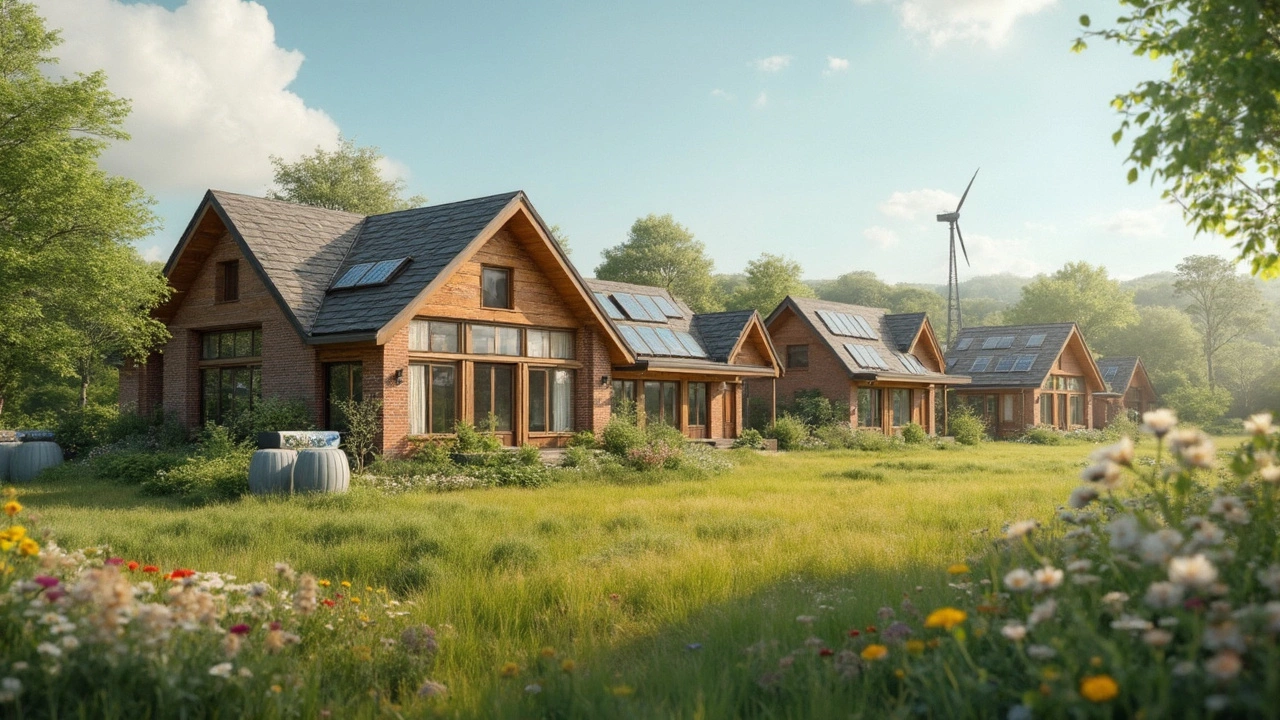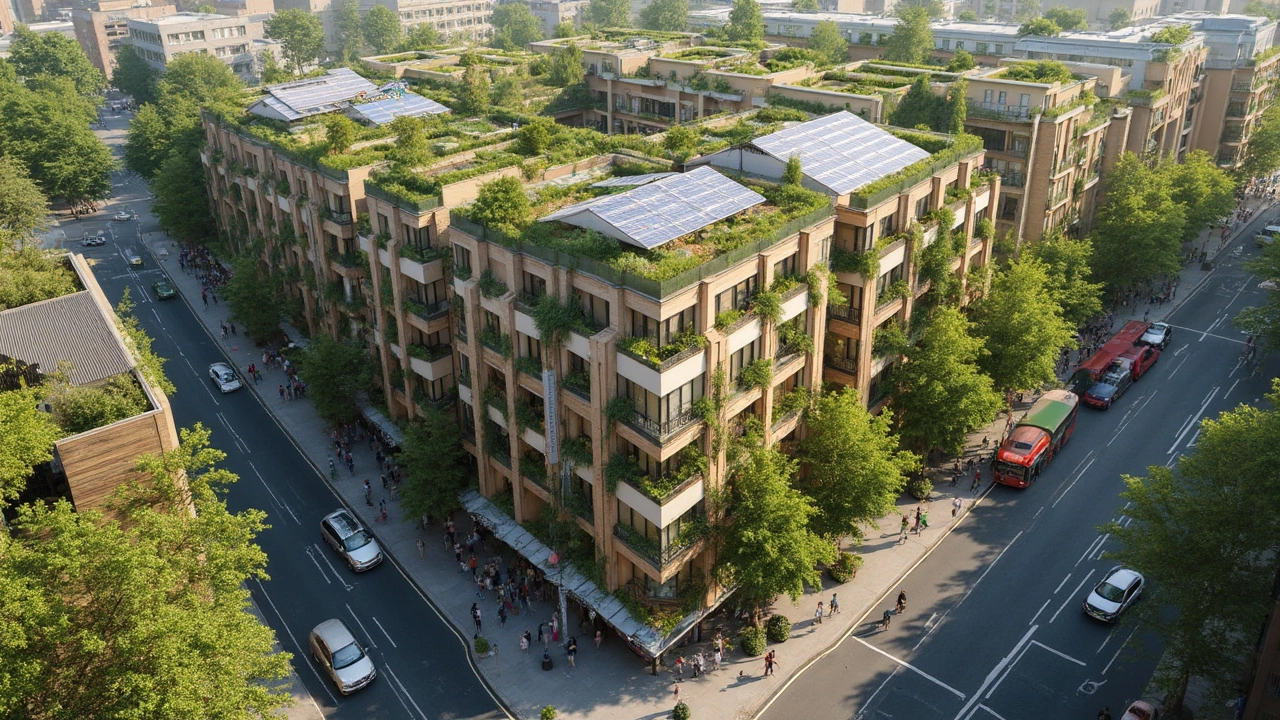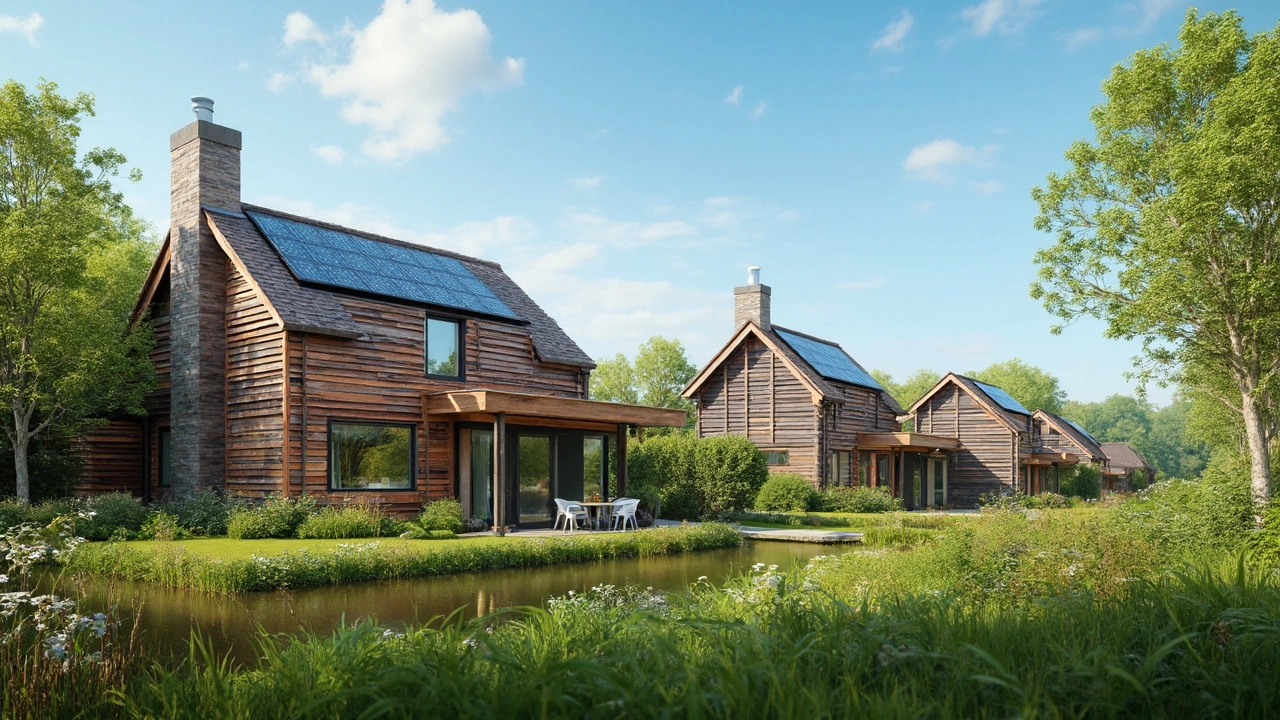Sustainable Housing in Lancashire: Green Cottages and Eco‑Retreats
If you love countryside getaways but care about the planet, you’re in the right place. Lancashire offers a growing range of cottages and lodges that are built to be low‑impact, use renewable energy, and blend into the local landscape. Below you’ll find practical tips to spot a truly sustainable place and why it matters for your holiday.
What Makes a Cottage Sustainable?
First, look at the materials. Reclaimed stone, timber from certified forests, and natural insulation like sheep’s wool keep the carbon footprint low. Many eco‑lodges use straw‑bale walls or hempcrete, which store carbon instead of releasing it.
Second, check the energy setup. Solar panels on the roof, ground‑source heat pumps, or small wind turbines should be listed on the property’s page. If the cottage runs on 100 % renewable electricity, you’ll see that highlighted in the amenities.
Third, water and waste matter. Low‑flow showers, dual‑flush toilets, and rainwater harvesting systems reduce the strain on local resources. Some owners even compost food waste on‑site, turning it into garden fertilizer.
Finally, think about location and transport. A cottage within walking distance of a village shop or public transport stop cuts down on car trips. Many sustainable retreats encourage biking by providing bike racks and loaning out cycle maps.
Finding Green Lodges in Lancashire
Start with the search filters on our site. Tick the “eco‑friendly” or “green building” boxes and you’ll see options like a solar‑powered cottage near the Forest of Bowland or a timber‑frame lodge beside the River Wyre. Read the description carefully – owners who are proud of their green features usually mention them up front.
Check the reviews. Guests often comment on the comfort of natural heating, the quiet of a well‑insulated property, or the extra effort the host takes to recycle. Real‑world feedback tells you if the sustainable claims hold up.
If you’re unsure, message the owner. Ask about the renewable energy source, insulation type, and any certifications such as Passivhaus or BREEAM. A transparent host will gladly explain their approach.Don’t forget the extra perks. Many sustainable cottages come with organic bedding, locally sourced food baskets, or access to community gardens. These touches elevate the stay while keeping the impact low.
Booking direct with the owner often saves money and cuts out third‑party fees, which is another eco win. It also lets you ask specific questions about waste handling or energy usage before you book.
When you arrive, keep your footprint small. Turn off lights when you leave a room, use the provided recycling bins, and respect any water‑saving guidelines. A few simple habits make a big difference.
After your stay, share what you liked. Positive reviews help other travelers find green options and encourage more owners to adopt sustainable practices. Your experience can spark a ripple effect across Lancashire’s holiday market.
In short, sustainable housing isn’t just a buzzword – it’s a real way to enjoy the countryside without adding extra load to the environment. Look for solid materials, renewable energy, water‑saving features, and a location that reduces travel. Use our filters, read reviews, and ask the host. By choosing an eco‑friendly cottage, you get a cozy retreat and help keep Lancashire beautiful for the next generation.

Eco-Friendly Cottages: What Type of Housing Is Most Sustainable?
Curious about the greenest way to build or buy a home? This article compares different types of eco-friendly housing, focusing on cottages and small homes. It breaks down which materials and designs make a real impact on your carbon footprint. You'll also find handy tips for making any home more sustainable. Get clear advice, not just buzzwords, so you can make choices that actually help the planet.
Continue Reading
Is Living in an Apartment More Eco-Friendly Than a House?
Choosing between an apartment and a house can impact your ecological footprint. Apartments generally offer reduced energy consumption due to shared walls, but houses can be made more sustainable with modifications. While urban apartments might minimize commute emissions, houses in suburban areas could rely more on renewable energy. It all hinges on lifestyle and local resources, making one option greener than the other depending on personal and location-specific factors.
Continue Reading
Are Eco Homes Expensive? Exploring the Real Costs of Green Living
Eco homes often seem costly upfront, yet they offer long-term savings and environmental benefits. Understanding the true cost involves considering factors like materials, energy savings, and potential returns. While the initial investment might be higher than traditional homes, the payback through lower utility bills and potential increased property value can balance the scale. Learn about the financial dynamics and benefits of investing in sustainable living.
Continue Reading